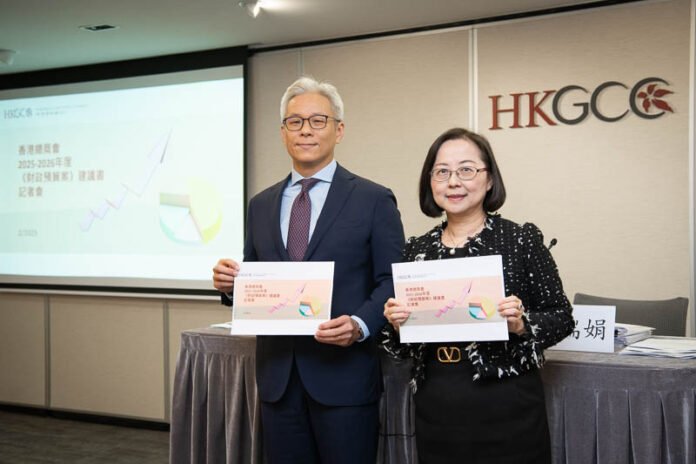Staff Reporter
The Hong Kong General Chamber of Commerce (HKGCC) is calling for more tax concessions for individuals and businesses in the upcoming fiscal year.
With the budget announcement set for later this month, the HKGCC has outlined recommendations across nine key areas, emphasizing the need for expenditure control and strategies to attract foreign investment.
Financial Secretary Paul Chan Mo-po is scheduled to present the budget for the 2025-26 financial year on February 26. He is anticipated to unveil cost-cutting measures aimed at addressing the city’s projected deficit of nearly HK$100 billion (approximately US$12.8 billion).
Chan has indicated that while Hong Kong strives to uphold its competitive edge with a straightforward and low tax system, the government will prioritize cost reductions over exploring new revenue streams.
Agnes Chan, chairwoman of the Hong Kong General Chamber of Commerce (HKGCC), reassures the public that the city’s economy is steadily recovering from the impacts of the pandemic.
“The budget deficit at that time was driven by two major factors: the employment subsidy and the e-consumption voucher. Both initiatives pushed the government’s deficit to over HK$100 billion, significantly contributing to that year’s substantial budget shortfall,” she noted.
Looking forward, Chan pointed out that the reopening of the border in February 2023 marked a pivotal moment for recovery, aided by the government’s loose monetary policy.
“This year, the Financial Secretary is already indicating a smaller deficit as we enter a phase of fiscal consolidation. Proposed measures include raising taxes on high-income earners and introducing a double-tier property tax,” she added.
Moreover, the HKGCC is advocating for a one-time tax exemption on salaries tax, personal assessment tax, and corporate tax, with a cap of HK$3,000. This proposal aims to alleviate financial pressure on taxpayers and enhance economic stability.
For small and medium-sized enterprises (SMEs), the HKGCC recommends that the government implement a long-term fixed-rate mortgage option. She emphasized that these measures could significantly reduce the financial burden on taxpayers while stabilizing operational costs for SMEs.
In addition, the HKGCC has urged the government to consider establishing a digital services tax. This tax would require foreign telecommunications companies providing entertainment and consumption services in Hong Kong to pay up to five percent annually.
It would apply to various revenue-generating activities, including in-app purchases, game downloads, content streaming, and other e-commerce transactions.
The HKGCC is also advocating for tax concessions in key sectors such as family offices, the low-altitude economy, and stock trading for mainland Chinese investors participating in the Shanghai-Hong Kong Stock Connect scheme.
The chamber argues that these tax measures would facilitate increased investment and contribute to economic diversification in Hong Kong.
Finally, the HKGCC has proposed a three-year tax exemption period for companies that relocate their headquarters back to Hong Kong, aiming to attract foreign investment and reinforce the city’s status as a global business hub.

